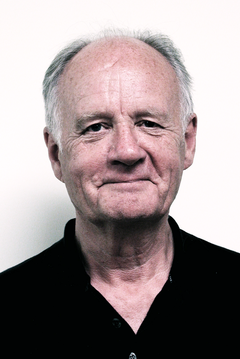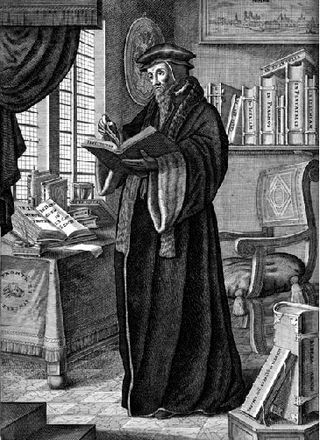 Selection: The Church Dogmatics II/1:25-31, §25.1 “Man before God.”
Selection: The Church Dogmatics II/1:25-31, §25.1 “Man before God.”
We saw in our previous discussion Barth’s contention that “Biblical knowledge of God is always based on encounters of man with God” (23). In this encounter—the divine encounter of grace—the human subject is confronted with the reality of God and called to a human act and decision in response and correspondence to the divine act and decision. God reveals himself as Lord, and the human is directed to God and called to obedience: this is the knowledge of God.
Knowledge of God is obedience to God. Observe that we do not say that knowledge of God may also be obedience, or that of necessity it has obedience attached to it, or that it is followed by obedience. No; knowledge of God as knowledge of faith is in itself and of essential necessity obedience. It is an act of human decision corresponding to the act of divine decision; corresponding to the act of the divine being as the living Lord; corresponding to the act of grace in which faith is grounded and continually grounded again in God (26).
The outcome of the encounter is not pre-determined but may issue in disobedience as well as obedience. That is does, in fact, issue in obedience remains the work of divine grace by which the person is directed by God to God (27). Although distinct from God on account of their sinfulness, yet they are also united to God precisely in this act of divine grace and condescension.
Barth supports his position by means of a short excursus exploring Calvin’s insistence that “we shall not say that, properly speaking, God is known where there is no religion or piety” (Calvin, Institutes, I.ii.1; 1:39). Barth’s reflection seeks to demonstrate that Calvin did not teach a natural knowledge of God but that such knowledge is possible only as we give ourselves obediently to God. Nevertheless, by the Holy Spirit such knowledge is efficacious (CD II/1:27-29). While insisting on the divine precedence that grounds the knowledge of God, Barth also insists on the two-sided nature of this knowledge:
For Calvin the fulfilment of the real knowledge of God is a cycle. God gives himself to be known in His will directed towards us. God is known by us as we are submissive to this His will. It is obvious that this cycle corresponds exactly to what is called knowledge of God in the Old and New Testaments. The encounters between God and man in the sphere of that secondary objectivity of God mean singly and in the aggregate that taking place of a history (Calvin: a negotium [= ‘dealings’]) between God and man. This history begins with a voluntary decision of God and continues in a corresponding voluntary decision of man. This history develops systematically and completely. The will of God offers itself as good will towards men and is met by faith. Man with his will yields and becomes submissive to the will of God. Faith becomes the determination of his existence and therefore obedience. And in this way the knowledge of God takes place. According to the Bible there is no knowledge of God outside this cycle. Knowledge of God means knowledge of the way or ways of God, which as such are good, true, holy and just. How can they be known except as God gives them to be known, i.e., gives Himself to be known as the One who goes these ways? Everything depends on this divine precedence. But again, how can they be known except as man for his part travels ways which in his sphere correspond to the ways of God—ways of wisdom, of life, of peace, which are indeed no longer his own ways, no longer the ways of the heathen and godless? Thus everything depends too on this human proceeding and going with God (28-29).
Where God in His benevolentia [goodness] gives Himself to be known by man, and where man stands before Him as the one who knows this benevolentia as such and is therefore determined by it and obedient to it, there and there alone is there a fulfilment of the real knowledge of God (29).
Barth’s account of the human knowledge of God, therefore, depends on God making himself an object of human consideration, giving himself to be known by them. In this benevolent self-giving God remains ever the Lord, addressing the person as their Lord and calling them to faith, trust, and obedience. In this construal, revelation is personal and relational, the act of God in a history of dealings with humanity and with each person, and in which their decision and corresponding act is necessary. Faith is not mere belief but a decisive reorientation and determination of a person’s life such that their life now moves along a path in correspondence to the paths along which God, too, goes. Faith means that now this person ‘goes’ with God. That they do so does not make them superior to others for it is not their work but God’s.
This account of the knowledge of God has its critics for it bypasses rational explication. This is the vulnerability of the knowledge of God understood as faith: it has no rational or apologetic foundation but is grounded solely in the event of revelation and the corresponding act of faith.
It is quite impossible to defend and maintain [this position] unless we represent its reality and possibility from withing outwards, and do not try to establish its reality and possibility from outside. ‘From outside’ means from the point of view of a human position where truth, dignity and competence are so ascribed to human seeing, understanding and judging as to be judge over the reality and possibility of what happens here. … Already we have had to understand the knowledge of God bound to the Word of God as an event utterly undetermined by man but utterly determined by God as its object (31).


